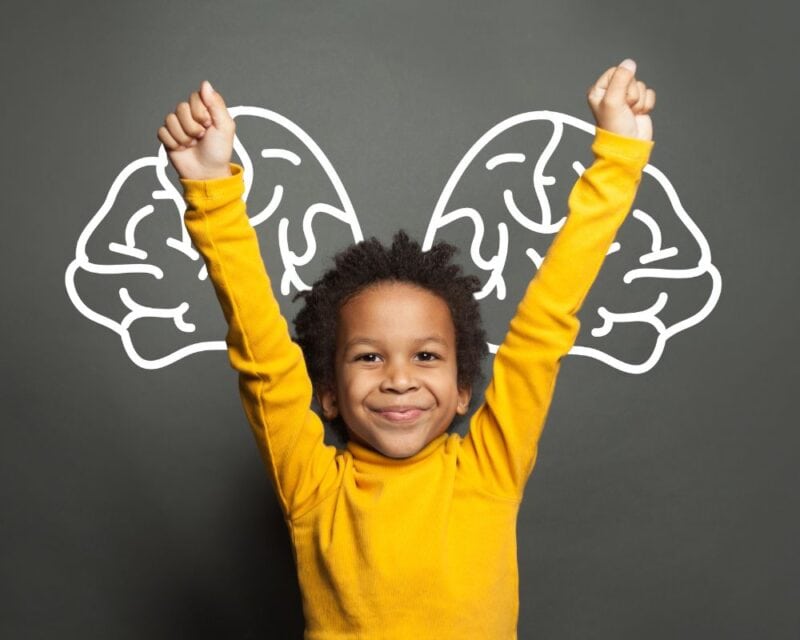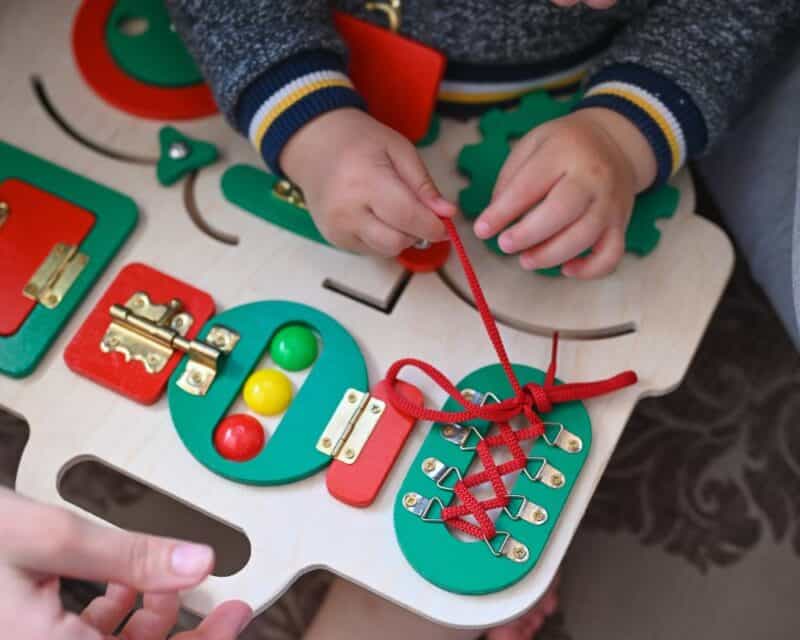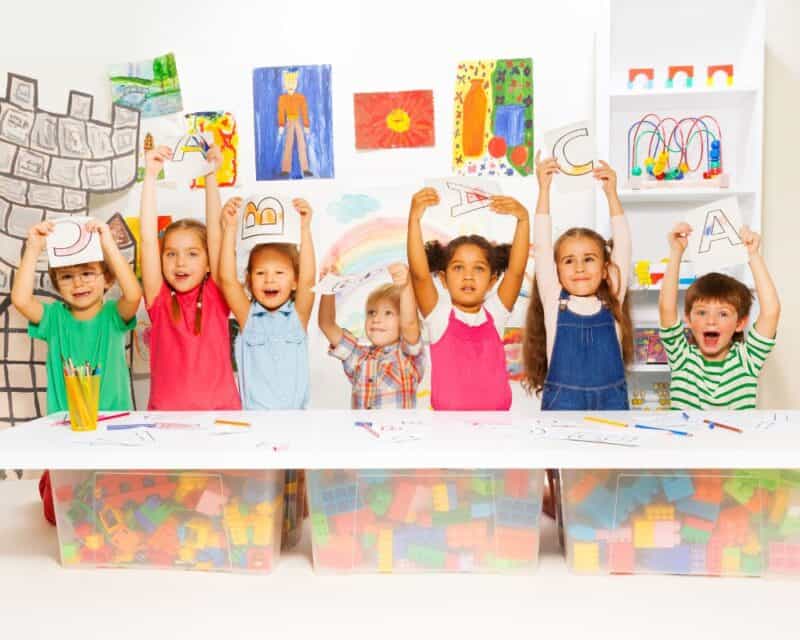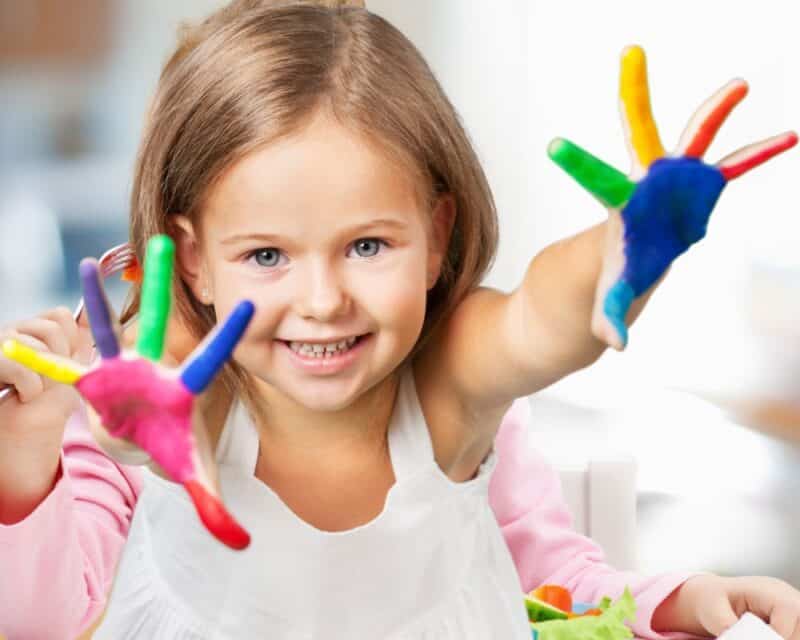Understanding child development is crucial for parents, caregivers, and educators alike. It provides valuable insights into the growth and progress of children, helping to nurture their potential and support their unique needs. In this article, we will explore the importance of recognizing developmental milestones and how they contribute to a child’s overall well-being.
Importance of Understanding Child Development

Every child progresses through a series of developmental milestones, marking their journey from infancy to adolescence. These milestones encompass various aspects of development, including cognitive, emotional, social, and physical domains. By understanding these milestones, parents and caregivers can better track their child’s progress and identify any areas that may require additional support or intervention.
Overview of Developmental Milestones
Developmental milestones are the key markers of a child’s growth and development at different stages of life. These milestones include the first smile, the ability to crawl, the utterance of first words, and the mastery of complex cognitive tasks. They serve as indicators of a child’s progress and can vary in timing and sequence for each individual.
Recognizing and celebrating these milestones not only provides reassurance to parents but also allows for early detection of potential developmental delays or issues. Early intervention is crucial in addressing such challenges and promoting healthy development in children.
Throughout this article, we will delve deeper into various aspects of child development, exploring cognitive, emotional, social, and physical milestones and providing practical tips for supporting children in reaching their full potential. Let’s embark on this journey of understanding and nurturing the development of our children together.
Early Child Development
During the first year of life, infants undergo rapid and remarkable growth and development across various domains. Understanding the milestones and patterns of development during this critical period is essential for caregivers to provide appropriate support and stimulation.
The First Year: Milestones and Physical Growth
In the first few months, infants typically achieve significant physical milestones such as lifting their heads, rolling over, and grasping objects. By around six months, many babies start sitting up unsupported and may even begin crawling. By the end of the first year, most infants can pull themselves up to stand and may take their first steps.
This period is also characterized by rapid physical growth. Infants typically double their birth weight by around six months and triple it by their first birthday. Proper nutrition, adequate sleep, and regular medical check-ups are crucial to support healthy physical development during this time.
Cognitive Development in Infancy
Cognitive development refers to the growth of intellectual abilities and the capacity to process information. Even in the early months, infants demonstrate cognitive skills such as recognizing familiar faces, responding to sounds, and showing curiosity about their surroundings.
As the first year progresses, infants become increasingly adept at exploring objects, understanding cause and effect relationships, and imitating actions. Simple games like peek-a-boo and playing with toys that encourage exploration and problem-solving can promote cognitive development during this stage.
Emotional and Social Development in the Early Years

Emotional and social development in infants is closely intertwined with their relationships with caregivers. Babies develop attachments to their primary caregivers, typically their parents, which serve as the foundation for future social interactions and emotional well-being.
Infants begin to express a range of emotions, including joy, sadness, and frustration and gradually learn to regulate their emotions with the support of caregivers. Social interactions, such as smiling in response to a caregiver’s face or babbling in conversation, play a crucial role in the development of social skills and communication.
Responsive caregiving, including attentive and affectionate interactions, fosters a sense of security and trust in infants, laying the groundwork for healthy social and emotional development. Creating a nurturing and stimulating environment that encourages exploration and provides opportunities for positive interactions is key to supporting infants’ overall development during the early years.
Cognitive Development
Cognitive development in children encompasses the growth of intellectual abilities and the acquisition of knowledge and skills. Understanding the various aspects of cognitive development is essential for parents and caregivers to support children in reaching their full potential.
Language Development: From Babbling to First Words
Language development begins at birth and progresses rapidly during the early years of life. Infants start communicating through cries, coos, and babbling sounds, laying the foundation for spoken language. By around six months, babies begin to understand simple words and gestures, and by their first birthday, many can say their first words.
Encouraging language development involves talking, singing, and reading to infants regularly. Responding to their attempts to communicate and using simple words and phrases to label objects and actions in their environment can help facilitate language acquisition.
Cognitive Abilities and Brain Development

The development of cognitive abilities, such as memory, attention, and problem-solving, is closely linked to brain development. The brain undergoes significant growth and organization during early childhood, with billions of neural connections forming and strengthening through experiences and interactions.
Stimulating activities that engage children’s senses and promote exploration and discovery can enhance cognitive development. Simple puzzles, sorting games, and imaginative play activities encourage problem-solving skills and foster creativity.
Intellectual Development: Abstract Ideas and Problem-Solving
As children grow older, their intellectual development progresses from concrete thinking to the ability to grasp abstract concepts and engage in complex problem-solving. They become increasingly capable of understanding symbols, making predictions, and reasoning logically.
Providing opportunities for children to explore open-ended activities and engage in critical thinking promotes intellectual development. Encouraging them to ask questions, explore new ideas, and find solutions to challenges helps cultivate their intellectual curiosity and resilience.
By understanding and supporting children’s cognitive development, parents and caregivers can lay a strong foundation for lifelong learning and intellectual growth. Encouraging exploration, curiosity, and problem-solving skills empowers children to navigate the complexities of the world around them with confidence and competence.
Motor Skills Development

Motor skills development refers to the progression of both fine and gross motor abilities in children, which are essential for their physical and cognitive development. Understanding these milestones and providing opportunities for practice and refinement is crucial for supporting children’s overall growth and independence.
Fine Motor Skills: Grasping and Hand-Eye Coordination
Fine motor skills involve the coordination of small muscles in the hands and fingers to perform precise movements. In infancy, babies begin to develop fine motor skills through activities such as grasping objects, reaching for toys, and bringing objects to their mouths. As they grow, they refine these skills, learning to manipulate objects with increasing dexterity.
Activities that promote fine motor development include playing with blocks, stacking toys, and engaging in arts and crafts. These activities help strengthen hand muscles and improve hand-eye coordination, which is essential for tasks such as writing, drawing, and self-care activities like buttoning clothes and using utensils.
Gross Motor Skills: Crawling, Walking, and Physical Activity
Gross motor skills involve the coordination of larger muscle groups to perform movements such as crawling, walking, running, jumping, and climbing. These skills are fundamental for children’s mobility, balance, and overall physical fitness.
Babies typically begin to develop gross motor skills through activities like tummy time, which helps strengthen the neck and core muscles necessary for crawling and eventually walking. As they become toddlers, they practice walking independently, climbing stairs, and exploring their environment through physical play.
Encouraging active play and providing opportunities for outdoor exploration and structured physical activities, such as swimming, dancing, and sports, supports the development of gross motor skills. These activities not only strengthen muscles and improve coordination but also promote cardiovascular health and overall well-being.
Occupational Therapy and Motor Development
Occupational therapy plays a vital role in supporting children with motor development challenges or delays. Occupational therapists work with children to improve their motor skills, coordination, and independence in activities of daily living.
Through targeted interventions and therapeutic activities, occupational therapists help children develop the strength, coordination, and confidence needed to perform everyday tasks. They may use various tools and techniques, such as sensory integration therapy, fine motor exercises, and adaptive equipment, to address specific motor challenges and promote optimal development.
Early identification and intervention are key to addressing motor development issues effectively. Parents, caregivers, and healthcare providers play an essential role in recognizing potential delays and seeking appropriate support and services to help children reach their full potential. By understanding and nurturing the development of children’s motor skills, we can empower them to explore the world around them with confidence and competence.
Emotional and Social Development

Emotional and social development in children are intricately intertwined and play crucial roles in shaping their overall well-being and relationships with others. Understanding and nurturing these aspects of development are essential for promoting healthy social interactions, emotional regulation, and the formation of strong relationships.
Emotional Skills in Young Children
From the earliest days of life, children begin to develop emotional skills that enable them to recognize and express their feelings. Infants communicate their needs and emotions through facial expressions, gestures, and vocalizations, laying the foundation for later emotional development.
As children grow, they learn to identify and label their emotions, understand the feelings of others, and regulate their emotional responses. Teaching children strategies for managing emotions, such as deep breathing, positive self-talk, and seeking support from trusted adults, helps them navigate challenging situations and build resilience.
Social Interaction and Social-Emotional Domain
Social interaction is central to children’s social-emotional development, providing opportunities for them to learn from and connect with others. Through play, conversation, and shared experiences, children develop essential social skills such as turn-taking, sharing, cooperation, and empathy.
The social-emotional domain encompasses various aspects of social development, including self-awareness, self-regulation, social awareness, relationship skills, and responsible decision-making. These skills form the foundation for positive relationships, effective communication, and healthy social interactions throughout life.
Building Strong Parent-Child Bonds
Strong parent-child bonds are essential for supporting children’s emotional and social development. Positive, nurturing relationships with caregivers provide children with a secure base from which to explore the world and develop healthy attachments to others.
Parents can foster strong parent-child bonds by being responsive to their child’s needs, providing love and support, setting clear and consistent boundaries, and spending quality time together. Engaging in activities that promote bonding, such as reading together, playing games, and having meaningful conversations, strengthens the parent-child relationship and enhances children’s emotional security and well-being.
Identifying Developmental Delays

Recognizing and addressing developmental delays early is crucial for ensuring children receive the support and interventions they need to reach their full potential. As a parent or caregiver, being aware of the signs of developmental issues and the importance of developmental screening can help you identify concerns and seek appropriate assistance.
Recognizing Signs of Developmental Issues
Developmental delays can manifest in various areas, including motor skills, language development, cognitive abilities, and social-emotional skills. While every child develops at their own pace, certain red flags may indicate a potential delay or concern:
Motor Development: Difficulty sitting up, crawling, walking, or using fine motor skills like grasping objects. Language Development: Lack of babbling or gestures by 12 months, absence of single words by 16 months, or limited vocabulary and understanding of language by 24 months. Cognitive Abilities: Challenges with problem-solving, memory, attention, or understanding basic concepts appropriate for their age. Social-Emotional Skills: Limited social interaction, difficulty forming attachments, or persistent behavioral issues. It’s essential to trust your instincts as a parent and consult with healthcare providers if you have concerns about your child’s development. Early intervention can make a significant difference in addressing developmental delays and promoting positive outcomes.
Importance of Developmental Screening
Developmental screening involves assessing a child’s growth and development to identify potential concerns or delays. These screenings are typically conducted by pediatricians, healthcare providers, or early childhood specialists and may involve standardized questionnaires, observations, and physical assessments.
Regular developmental screenings are recommended at specific intervals during early childhood, such as at well-child visits or milestone ages. These screenings help healthcare providers track children’s progress, detect any developmental concerns early, and provide appropriate referrals or interventions as needed.
By participating in developmental screenings and remaining vigilant for signs of developmental delays, parents and caregivers can play a proactive role in supporting their child’s development and ensuring they receive the necessary support and services.
Remember, early intervention is key to addressing developmental issues and promoting optimal outcomes for children.
Supporting Healthy Development

Ensuring healthy development in children requires a collaborative effort involving early intervention programs, healthcare providers, specialists, and active parental involvement. By leveraging resources and implementing effective strategies, caregivers can create an environment that fosters optimal growth and development in children.
Early Intervention Programs and Services
Early intervention programs are designed to identify and address developmental delays or concerns in children from birth to age three. These programs provide a range of services, including developmental screenings, assessments, therapy services, and family support.
Participation in early intervention programs can significantly impact children’s outcomes by providing timely interventions and support tailored to their individual needs. Services may include speech therapy, occupational therapy, physical therapy, and behavioral interventions, among others.
Role of Healthcare Providers and Specialists
Healthcare providers, including pediatricians, family doctors, and specialists, play a critical role in supporting children’s healthy development. They conduct regular check-ups, monitor growth and development, and provide guidance and referrals as needed.
Pediatricians and healthcare providers can offer valuable insights and resources to parents regarding developmental milestones, behavior management strategies, and available services. Specialists such as developmental pediatricians, occupational therapists, speech therapists, and psychologists may also be involved in assessing and addressing specific developmental concerns.
Tips for Parents: Encouraging Learning and Growth
Parents play a fundamental role in supporting their child’s development from infancy through childhood and beyond. Here are some tips for fostering learning and growth:
- Create a nurturing environment: Provide a safe, stimulating, and supportive environment that encourages exploration, curiosity, and independence.
- Engage in meaningful interactions: Spend quality time engaging in activities that promote bonding, communication, and social interaction, such as reading, playing, and having conversations.
- Encourage play-based learning: Play is essential for children’s development, promoting creativity, problem-solving, and social skills. Encourage imaginative play, exploration, and hands-on learning experiences.
- Promote healthy habits: Ensure children receive proper nutrition, adequate sleep, and regular physical activity to support overall health and development.
- Stay informed and involved: Stay informed about developmental milestones and seek guidance from healthcare providers if you have concerns. Participate in parent education programs and support groups to connect with other caregivers and access resources.
- Celebrate progress: Recognize and celebrate your child’s achievements and milestones, no matter how small. Positive reinforcement and encouragement boost confidence and motivation.
By actively engaging in early intervention programs, seeking support from healthcare providers and specialists, and implementing effective parenting strategies, caregivers can create a supportive environment that promotes healthy development and unlocks each child’s full potential.
Conclusion

In conclusion, understanding the various aspects of child development, including cognitive, emotional, social, and motor skills, is crucial for parents, caregivers, and educators. By recognizing the signs of developmental delays and seeking early intervention when needed, caregivers can ensure that children receive the support and services necessary to thrive. Regular developmental screenings and consultations with healthcare providers play a vital role in monitoring children’s progress and addressing any concerns that may arise.
Encouraging lifelong learning and development involves creating a nurturing environment that fosters curiosity, exploration, and independence. Engaging in meaningful interactions, promoting healthy habits, and celebrating achievements contribute to children’s overall well-being and self-confidence.
As we continue to support children in their journey of growth and development, let us remember the importance of patience, understanding, and encouragement. By working together and providing the necessary resources and guidance, we can empower children to reach their full potential and lead fulfilling lives. Here’s to a future filled with endless possibilities and opportunities for learning and growth.
